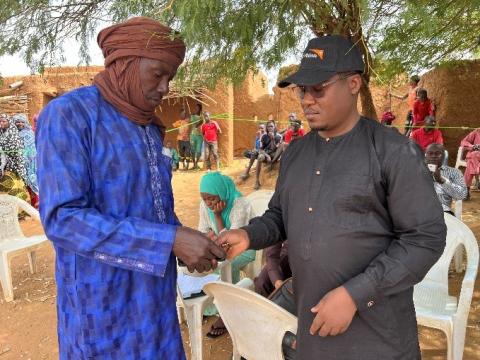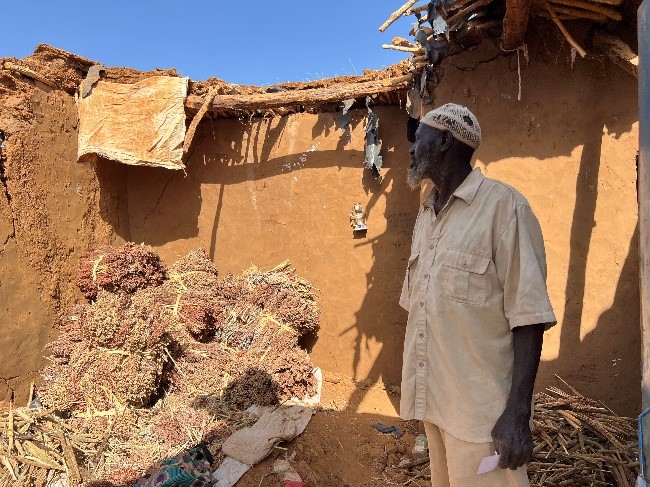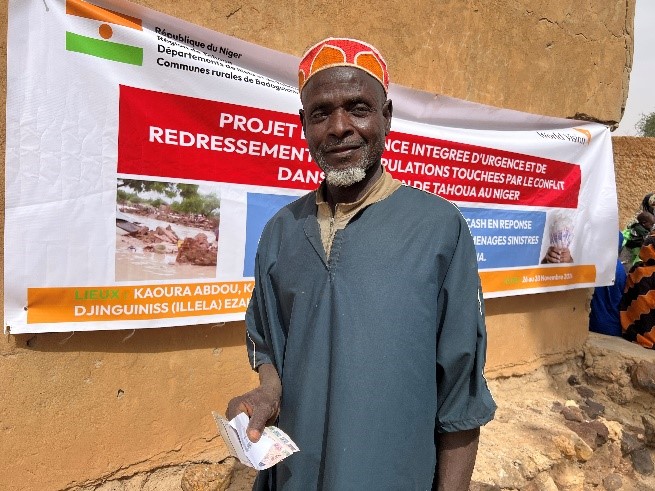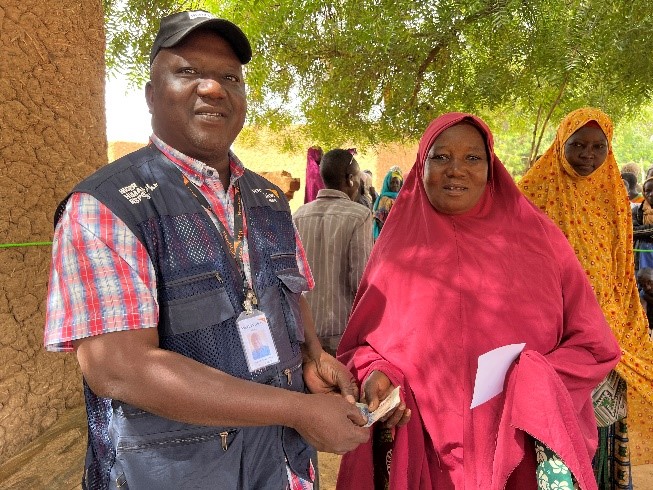Hope After the Floods: World Vision’s Response in Tahoua, Niger

This is World Vision's response to the floods in Tahoua, Niger.

Since the start of the rainy season in July 2024, flooding has affected more than one million people across Niger. In the Tahoua region, heavy rainfall has caused widespread destruction, including the houses' destruction and loss of livestock, as well as the flooding of farmland.
“This year’s floods were very violent. I’m almost 70 years old and I’ve never seen rain like this before. First, there were days of non-stop rain, with 105 mm of rainfall recorded. Then our houses began to fill with water from everywhere. Almost every household was affected, and everyone was trying to save what they could in their own homes. Then the river behind the village overflowed, draining floods of water into the village,” explains Alio Nomaou, representative of the village chief of Djinguiniss in the commune of Illela.
At Abou Almou's house in the village of Kofilalan in the rural commune of Barmou, "The rains brought down all three of the houses on his property. They all collapsed. Luckily, we had time to get out. I now live in a shed with my whole family."

As Alio Nomaou explains here, the floods in the Tahoua region have caused several major challenges, such as the destruction of infrastructure and losses to the economy and agriculture:
"The rains destroyed all the fields within a 200-metre radius of the pond. Everyone within this radius was killed because the water reached their waists. After the water receded, people replanted, but the rains stopped shortly afterwards and the new crops failed to grow. Nevertheless, the fields that were spared by the floods produced a fairly good yield. The cowpeas that were replanted afterwards also produced an acceptable harvest."
This has significant economic repercussions for the affected communities.
For example, "I I will have to invest more than 400,000 CFA francs to rebuild my destroyed houses. I will have to sell some of my livestock and part of my modest harvest to cover the costs of rebuilding my collapsed houses. If God grants success to my children who have left for pastures new, some of them may be able to help me. God willing, I intend to rebuild the houses before the next rainy season. Even if I have to go into debt to do so, I won't have much choice," says Abou Almou.

Local authorities and humanitarian organisations are working hard to provide aid to those affected. People are being evacuated from flood-prone areas and taken to temporary shelters where they are provided with food and medical care.
World Vision Niger is playing a crucial role in the Tahoua region's flood relief efforts. The organisation has provided non-food items (NFIs) and cash assistance to those affected. These actions aim to help people recover from the devastating effects of the floods and strengthen their resilience to future natural disasters.
"I just received 40,000 CFA francs in cash assistance from the NGO World Vision. This is truly help I never expected. Thanks to this money, I will be able to buy food to add to my small harvest to further ensure my children's livelihood," confirms Fadima Yacoubou, a resident of Garin Ayache village.
Kassou Assoumane, a beneficiary from the village of Djinguiniss/Illela, said: “This financial assistance from World Vision will allow us to buy food and partially compensate for the loss of our harvest, ensuring that my children have enough to eat.”

As for Alio Nomaou, "Thanks to World Vision’s support today, many families can start rebuilding their homes and buy essentials to keep their children warm this cold season. Our whole village feels a sense of relief."
The aid provided to flood victims in the Tahoua region aims to have a significant impact on improving living conditions and rebuilding livelihoods. These combined efforts will help mitigate the immediate effects of the floods and lay the foundation for longer-term recovery for the affected communities.